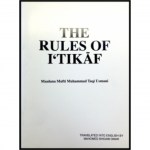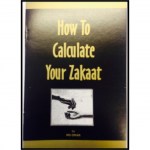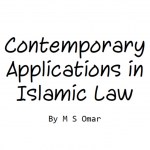1.When shares are acquired in a company, the transaction is often structured , for tax purposes, on the basis that a portion of the price is allocated to shares, and the balance to loan account , as part of a single indivisible transaction: the consummation of the one is contingent upon the other. The shares ( so acquired) can thereafter only be sold together with the linked loan account in a single indivisible transaction.
2.In this situation, the loan account is in substance equity, from a Shariah perspective. لان العبرة في العقود للمقاصد و المعانى لا للالفاظ
3. On this basis, the shares and linked loan account held by the shareholder effectively represents the shareholder’s pro rata share in the underlying assets of the company.
4. The underlying assets of the company must be evaluated to determine whether there are Zakaatable assets, and if so, the identity thereof. For example, the underlying assets may only constitute immovable property for investment ( capital gain) , which is exempt from Zakah. This excludes cash or rental income held on the Zakah valuation date.
5. To the extent that the underlying assets of the company include Zakaatable assets, ( eg: stock- in - trade + receivables +cash less allowable liabilities), such assets would be subject to Zakah, either in the hands of the company as a separate entity, or, in the hands of each shareholder, in proportion to shareholding.
6. However, in this context, the monetary value of the loan account itself,( treated as part of equity ) is not subject to Zakah by the shareholder.Nor is it a deductible liability against the Zakaatable assets of the company.
7. Upon the sale of the shares and linked loan account, in one indivisible transaction, the consideration paid and received by the seller, will be deemed to be added to the aggregate value of the remaining Zakaatable assets in the year of receipt, and Zakah will be paid thereon, or the remainder thereof, as held on the Zakah valuation date. No Zakah will be paid for preceding years on the proceeds of such sale. و انما تجب الزكاة فيما يبقى فى نهاية الحول بمنزلة مال المستفاد بضمه الى الموجودات الزكوية الاخرى
( و ذهب الحنفية الى انه يضم كل ما ياتى عند الحول الى النصاب الذى عنده فيزكيها جميعا عند تمام الحول ).
And Allah Knows Best
M S Omar
27 April 2021
1. Ownership of a share in the issued share capital of a listed or unlisted company , whose core activity is halaal, represents ,in substance , a pro-rata undivided share in the underlying assets of that company, which may comprise of Zakaatable or non - Zakaatable assets, or, a combination of both. يمثل السهم حصة شائعة في موجوداتها الزكوية..... و محل العقد عند تداول الاسهم هو هذه الحصة الشائعة .
2. The shareholder should, by reference to the last available financial statements, identify and reasonably estimate the value of the underlying Zakaatable assets, after deducting those specific liabilities incurred in respect of financing only Zakaatable assets, at the arrival of his or her final Zakah valuation date, at the end of the relevant Zakah year. If the shareholder is unable to do so , for whatever reason, he or she should then pay Zakah on the market value of the share as at the Zakah valuation date, at the end of the year. الاستثمارات في الأسهم فغرض الاحتفاظ بها ( النماء : اذا امكن عن طريق الشركة معرفة ما يخص السهم من الموجودات الزكوية: النقود و عروض التجارة و الديون المرجوة السداد فانه يزكى ذالك...
3. Zakaatable assets, as prescribed by the Shariah, are gold, silver, cash, and sound book debts , which are subject to Zakah under all circumstances, whether productively employed in commerce or not. اذا ظهر النماء او لم يظهر لان السبب قد يتحقق راجع: البناية فى شرح الهداية
4. Any other asset is exempt from Zakah, unless such asset was acquired for the primary intention of resale, and is therefore deemed to constitute trading stock, in the hands of the owner , as at the arrival of the Zakah valuation date, at the end of the relevant year. الاصل ان ما سوى الاثمان من الاموال لا تجب فيه الزكاة الا بإعداده للتجارة و نواه للتجارة.
5. Shares in a company, therefore, acquired with the primary intention to resell at a profit ( and not to hold as an investment for capital growth) constitutes stock in trade, with the result that Zakah is payable thereon on the Zakah valuation date at the market value thereof, as at the the Zakah valuation date.
من اشترى اسهمه بنية التجارة فانه تجب عليه زكاة عروض التجارة، حسب قيمتها السوقية،
وأما المساهم المستثمر ، الذى لا يقصد بشرائها المتاجرة و المضاربة فيها، و إنما قصد الاستثمار طويل الأجل ، فانه يؤدي الزكاة عن موجودات الشركة الزكوية
فقط.
6. Zakah may be paid by the shareholder, in that capacity, pro-rata to shareholding, ( Hanafi school) , or, by the company as a separate legal entity( in substance, upon the partnership principle) , if the shareholders resolve to do so. The other schools ( mazaaib) treat the assets of a partnership, held in co- ownership, by the partners, as the ( notional) property of a single owner, ( analogous to a legal person) for Zakah purposes. و تفسير ذالك ان مالكا و الشافعى و اكثر فقهاء الامصار اتفقوا على أن الخلطاء يزكون زكاة المالك الواحد. راجع بداية المجتهد
7. If the underlying assets of a specific company are exempt from Zakah, then Zakah is payable on the dividend income, or the unexpended remainder thereof, which is added to the aggregate value of the Zakaatable assets on the Zakah valuation date, at the end of the relevant year: gold+silver +cash+book debts +stock- less allowable liabilities: 2.577% ( to cover lunar year). و اذا لم يكن لدى الشركة موجودات الزكوية فانه يزكى ما يبقى من صافى الايراد فى نهاية الحول : الشركة
8. In relation to a subsidiary company, it may separately calculate its own Zakah, or, alternatively , the holding company may determine its pro-rata share of Zakaatable assets in the subsidiary,if any, on the same basis as stated in paragraph 2 above. Care should be taken to ensure that there is no double counting.
9. If the shareholder sells his or her shares , during the course of the year, then the proceeds thereof, or, the unexpended remainder , at the end of the year, is added to the aggregate value of the Zakaatable assets, will be subject to Zakah. اذا باع المساهم اسهمه في اثناء الحول ضم ثمنها الى ماله الزكوية و زكاه معه عندما يجيء حول زكاته.
10. The aforegoing approach is consistent with the resolutions of the distinguished global Islamic Fiqh Academy: resolutions number:28/3/4 and 121/3/13.
واللة اعلم بالصواب.
And Allah Knows Best
MS Omar
Durban
Updated: 15 May 2021

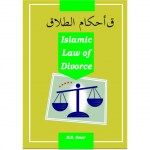
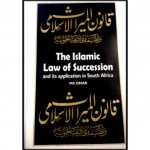



 SUPPORT
SUPPORT
